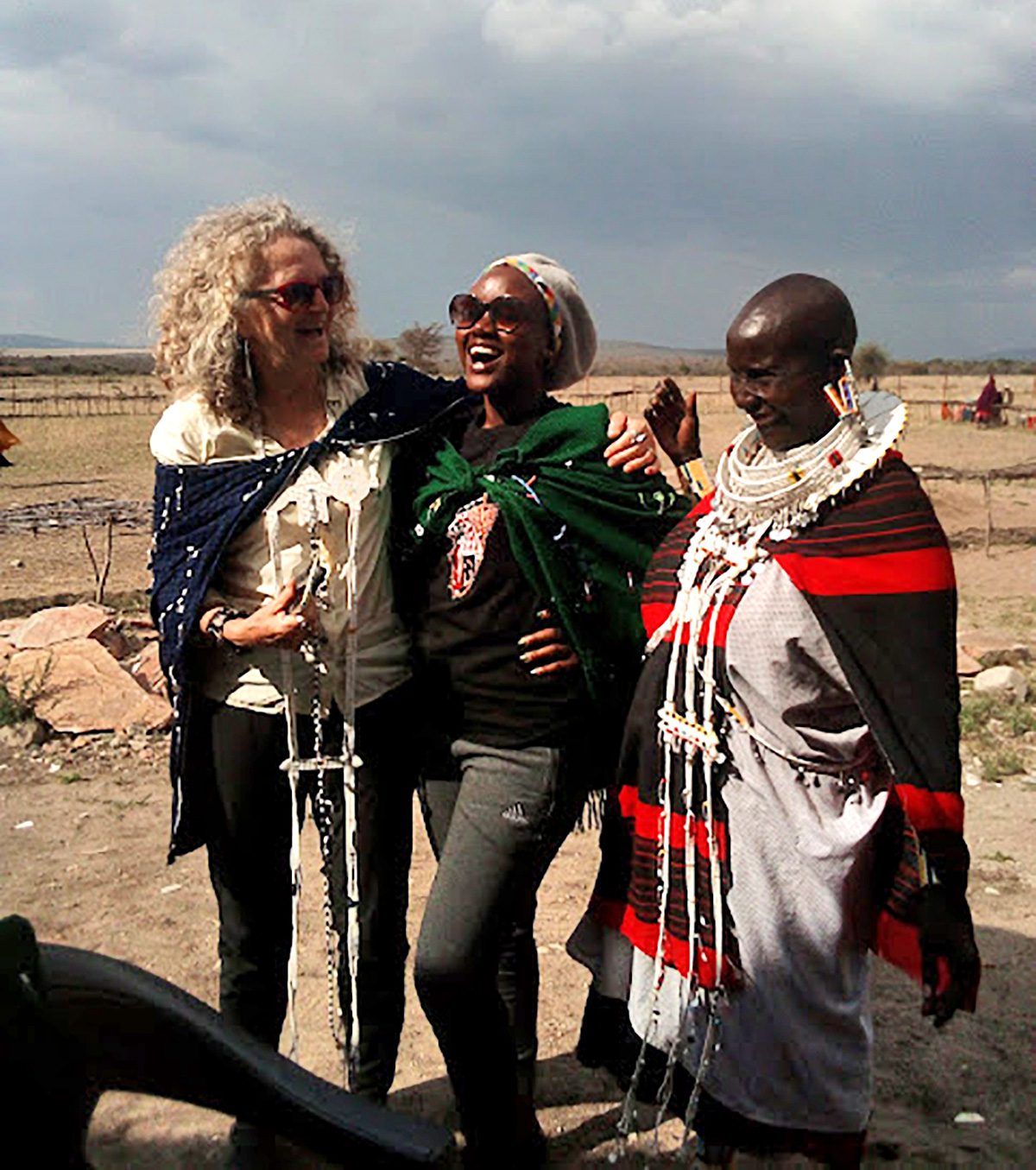Meet Asela, a Beekeeper Empowering Women with FOTZC
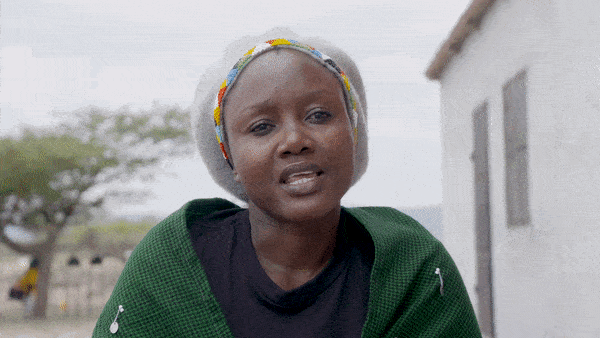
Helping Maasai women manage their own beehives is about much more than honey to Asela Melkiory, beekeeping project manager at Community Conservation Banking (COCOBA). COCOBA is a microfinance initiative designed by Focus on Tanzanian Communities (FOTZC), Thomson’s sister philanthropic organization, that teaches women in the Serengeti region to open small, environmentally friendly businesses.
We caught up with Asela for a Q&A about her work with beekeeping, Maasai women and community empowerment.
Why did you join COCOBA’s beekeeping project?
My main goal was to work with a Maasai community and help them have a strong economy. When I found out I would be working with all women, I was like, “Wow.” I joined them so I could fulfill my passion.
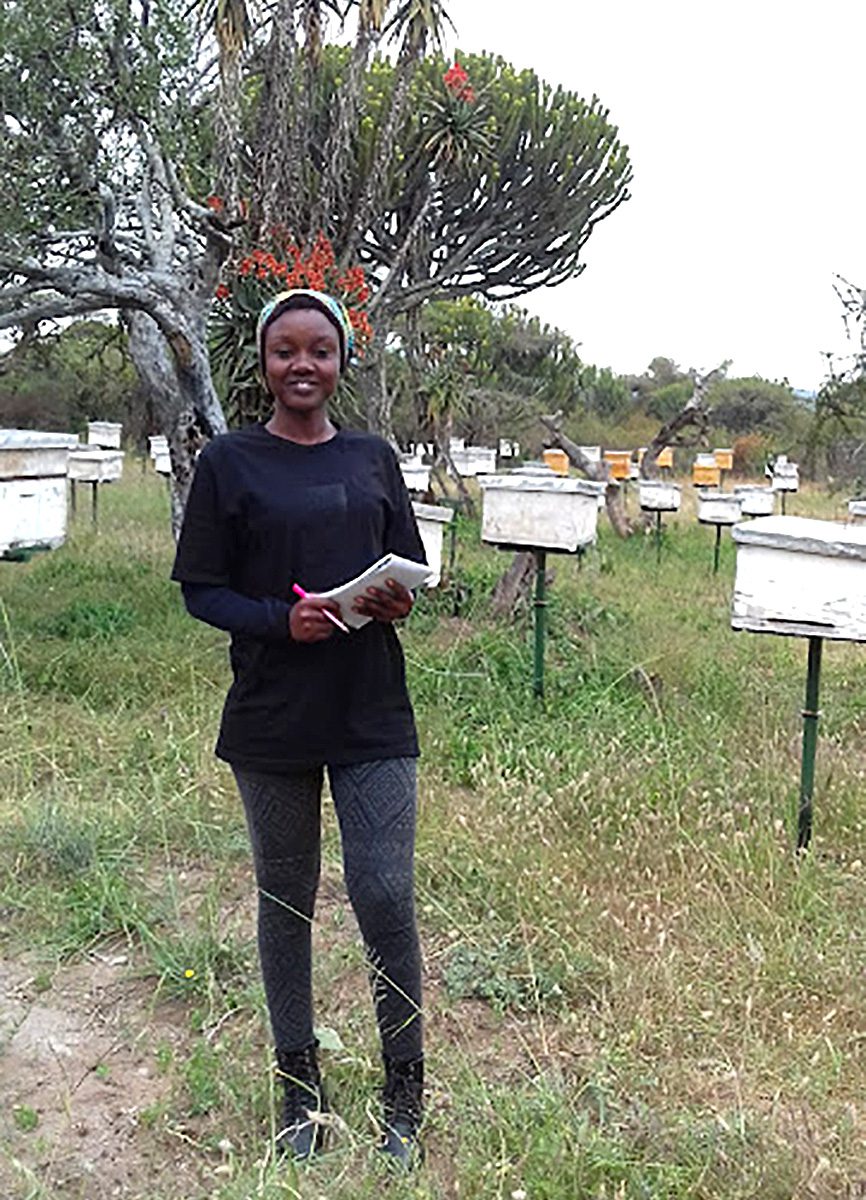
In Tanzania, is beekeeping generally considered a man’s task?
Very much. It needs someone with a strong heart and determination, because bees are very aggressive and very dangerous. Since hard work is considered to be a man’s, beekeeping is considered male labor.
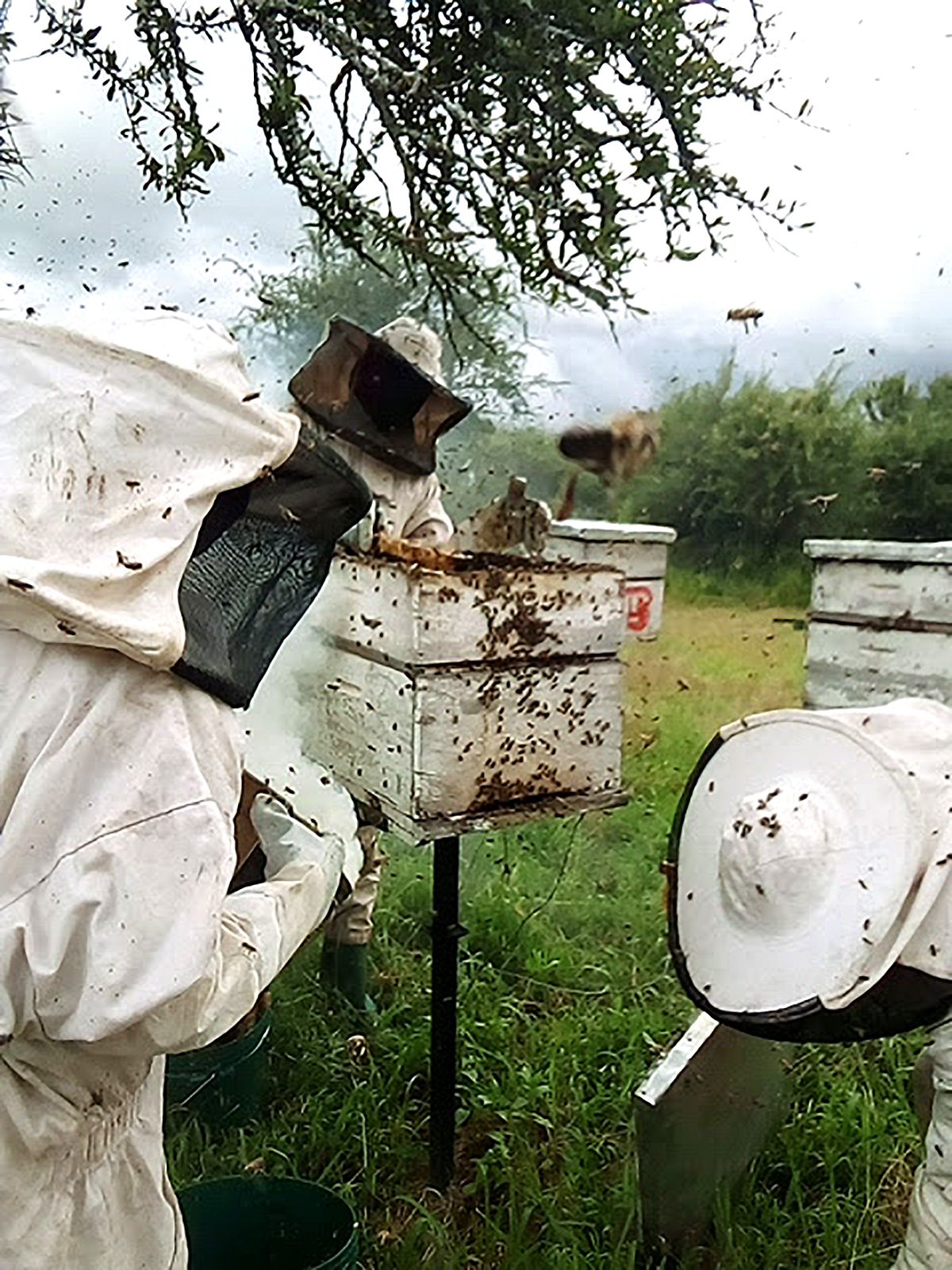
Does COCOBA challenge that traditional outlook?
That concept has been completely wiped out. COCOBA has a group of many women–270 women–who are on the beekeeping project. It’s very different now within their communities.
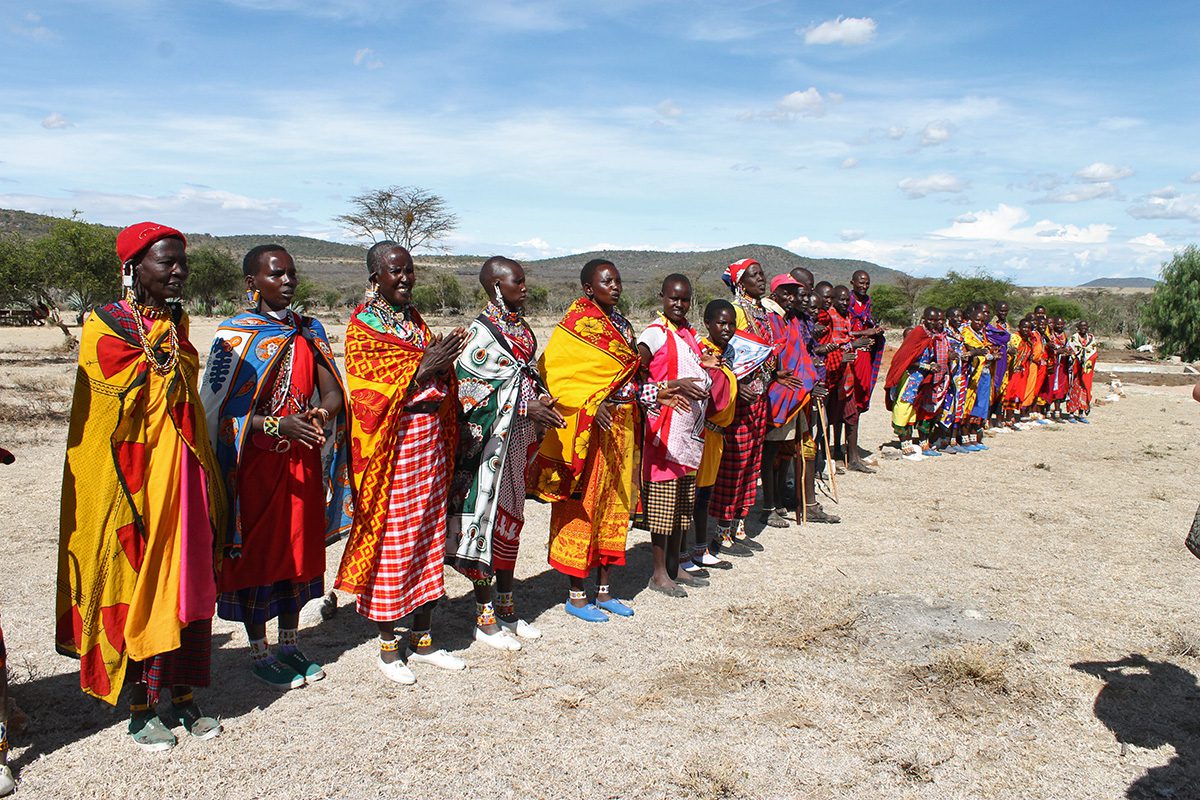
Why are Maasai women interested in beekeeping?
When they see their fellow woman in beekeeping, that gives them the courage. They discover the benefit that comes with beekeeping. That business increases the income in their household, and they are able to send their children to school, to feed their families, and to start different businesses.
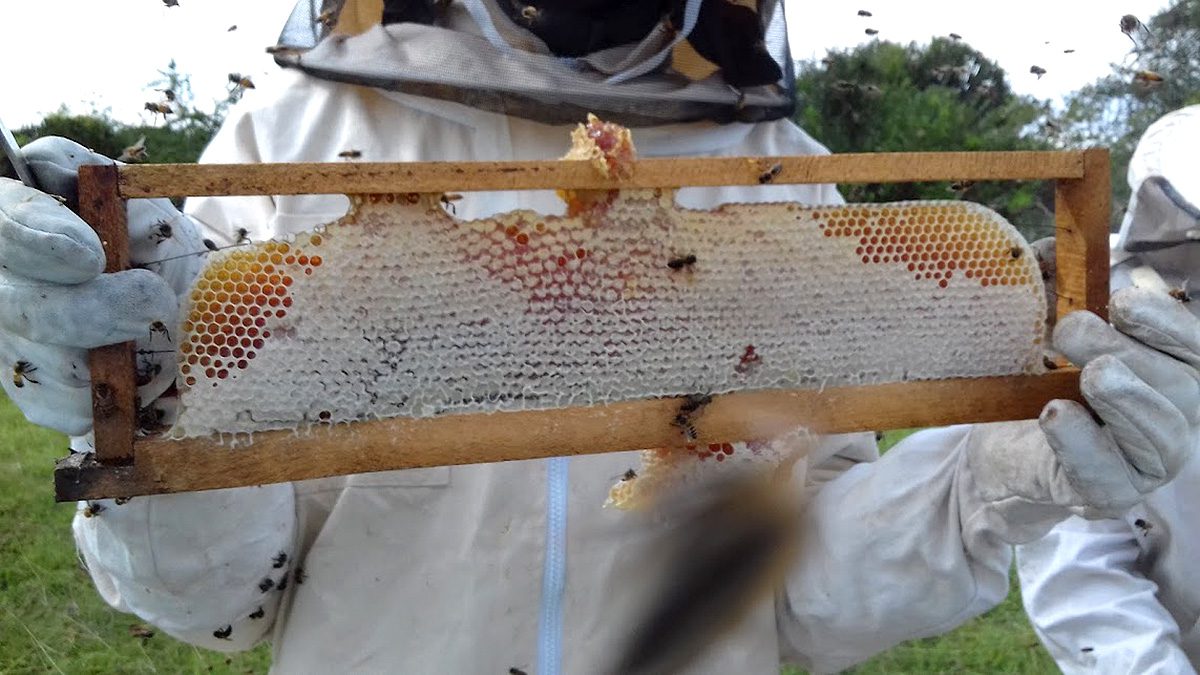
What kind of products do they sell?
Now, they are selling just honey. But in beekeeping, there are more than four products they can get. We started to teach them about the second product: wax! By the time they finish this training, they will be able to sell wax products, like lotions, candles, soaps, etc.
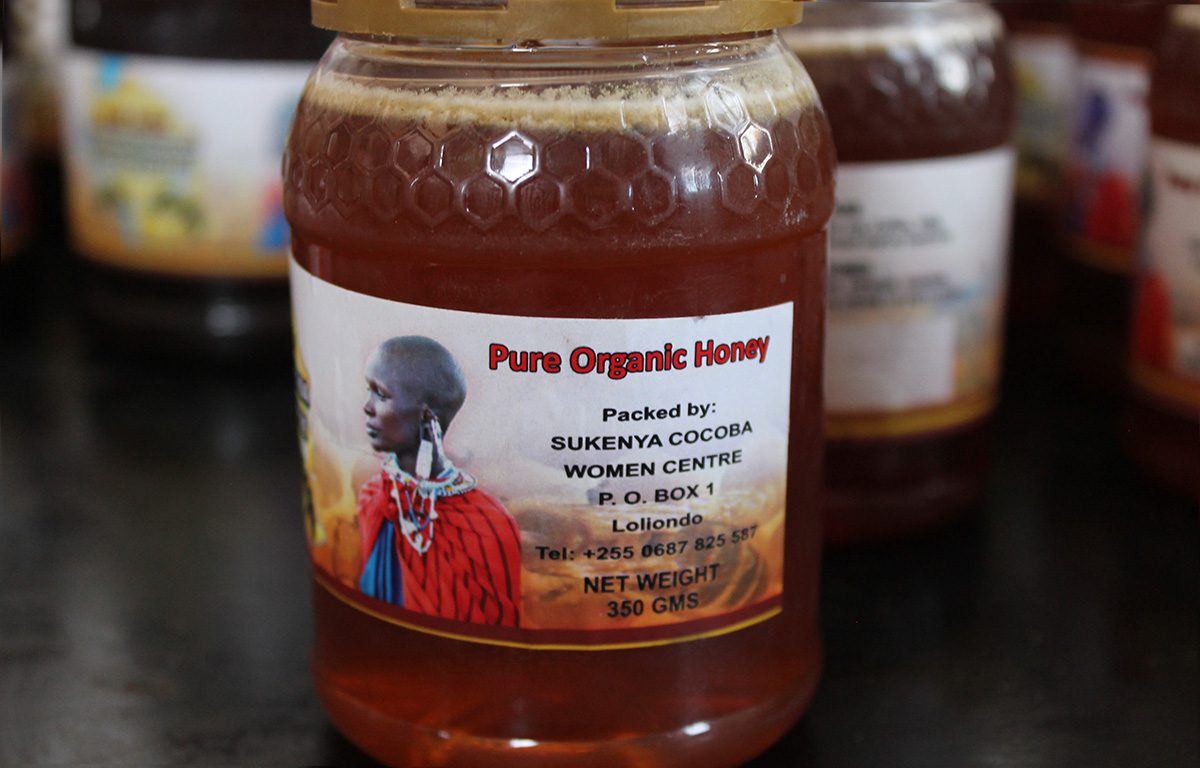
What is it like, training women to start and maintain beehives?
It‘s very enjoyable and interesting work! I love the women so much and it’s my passion to work with them. You need someone who is very committed and passionate. Give them time to learn, slowly, slowly, until they achieve what they want.
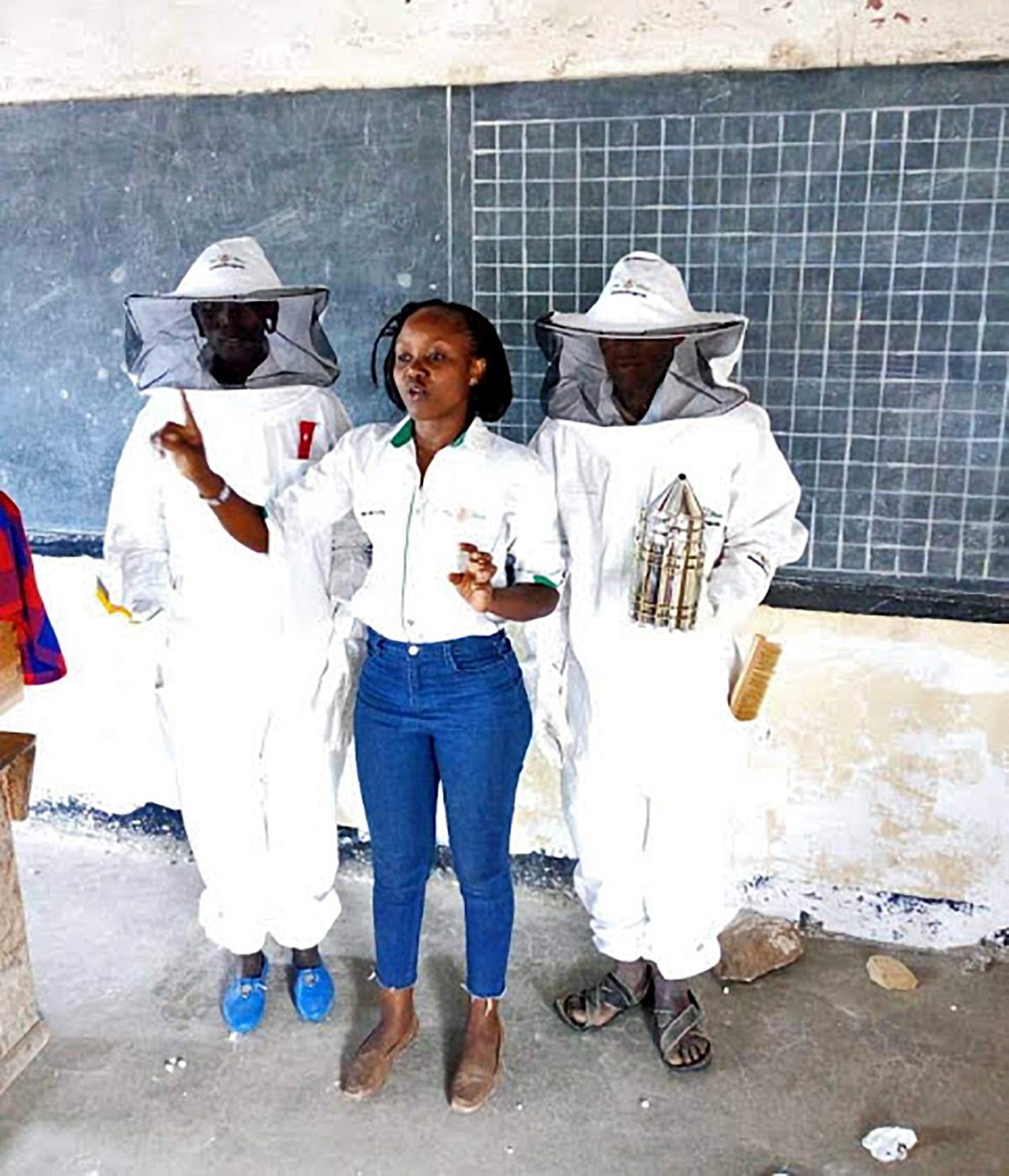
What’s your secret for dealing with a bee sting?
You sit there and wait! That’s how I do it. You just wait until the pain goes away.
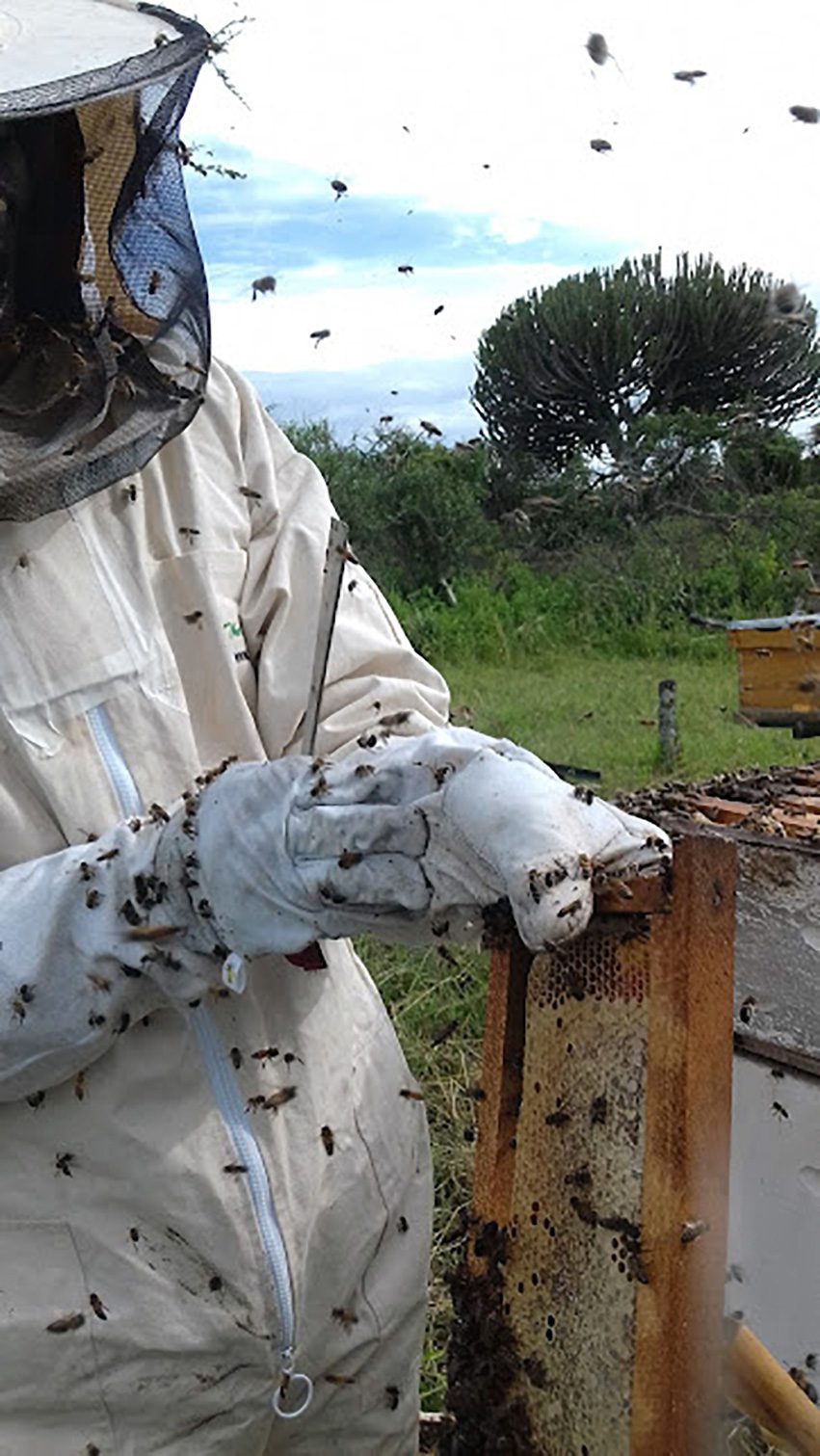
What opportunities does beekeeping provide to the women of COCOBA and their families?
The Maasai communities have this patriarchal system. Women don’t have any voice in their community. They have no power to make decisions. They don’t have any ability in their economy. As a result of COCOBA, women are now able to do their individual work like selling maize, selling bees, selling chicken, and they see a lot of money. And from that money, they get economic freedom. They get the power to make decisions in their community, send their children to school, feed their families and acquire services they didn’t have before.
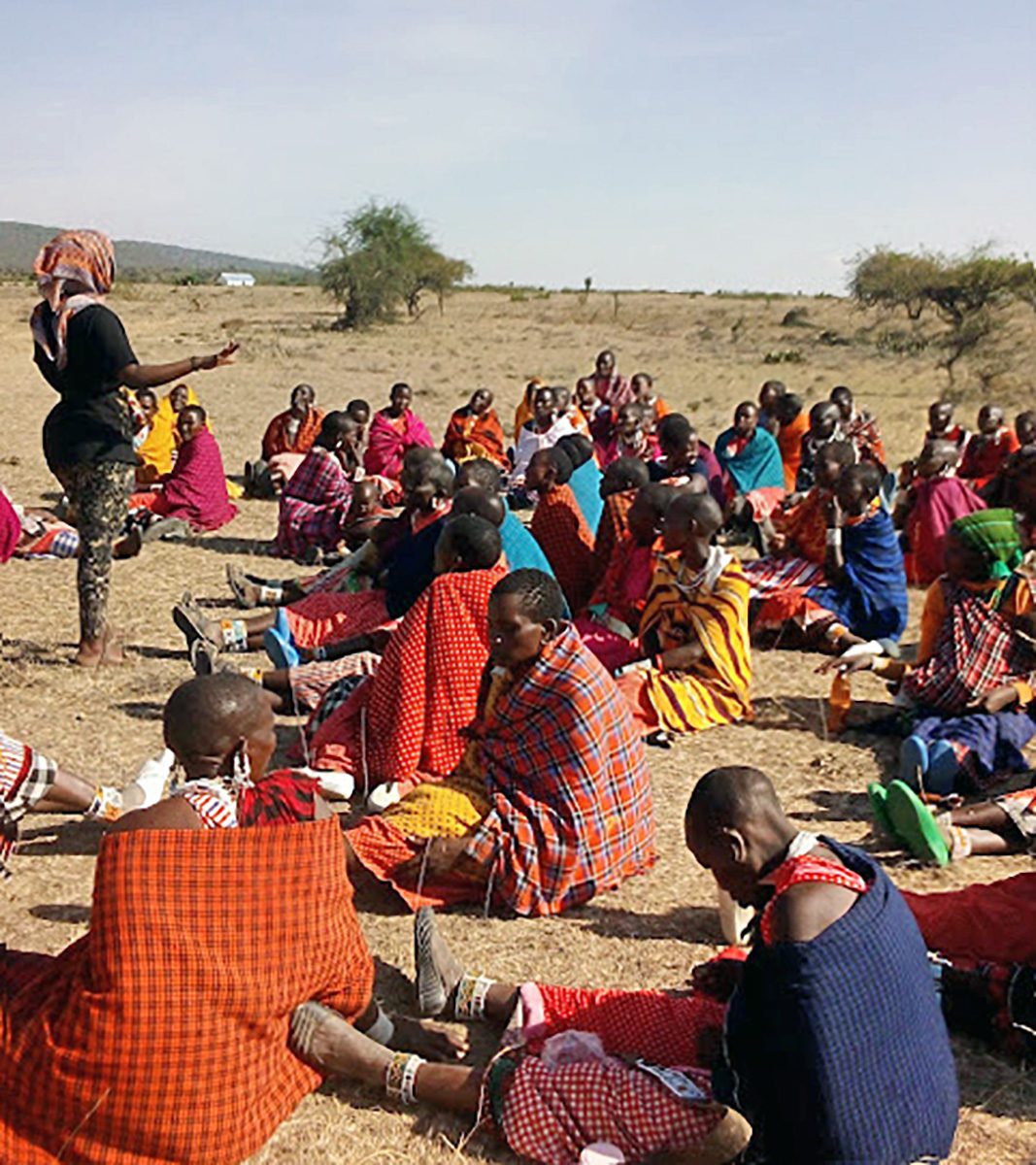
How has working with these women changed your life?
Working with the women and encouraging them increases my passion, and they love it. They’re empowered in beekeeping. They are giving their descendants this knowledge. The young girls are the women of tomorrow; you need to teach them that, despite the hardships they come from, they can bring positive results to society.
I like this experience, and I enjoy working with these women. They sometimes mess with your mind, but at the end of the day, they come to their senses.
Mess with your mind?
For instance, on the day we go for hive inspection, we are going to interact with bees. Someone might tell me, “Asela, me? I’m old! I can’t do this, I can’t do this.” And others are not old, but they are afraid. I tell them, “I’m just a woman, as you are, and I’m going there, and I have a heart like you.” You know? So, they just laugh and shake their heads, and we continue to do the work. They can be stubborn, but they are perfect.
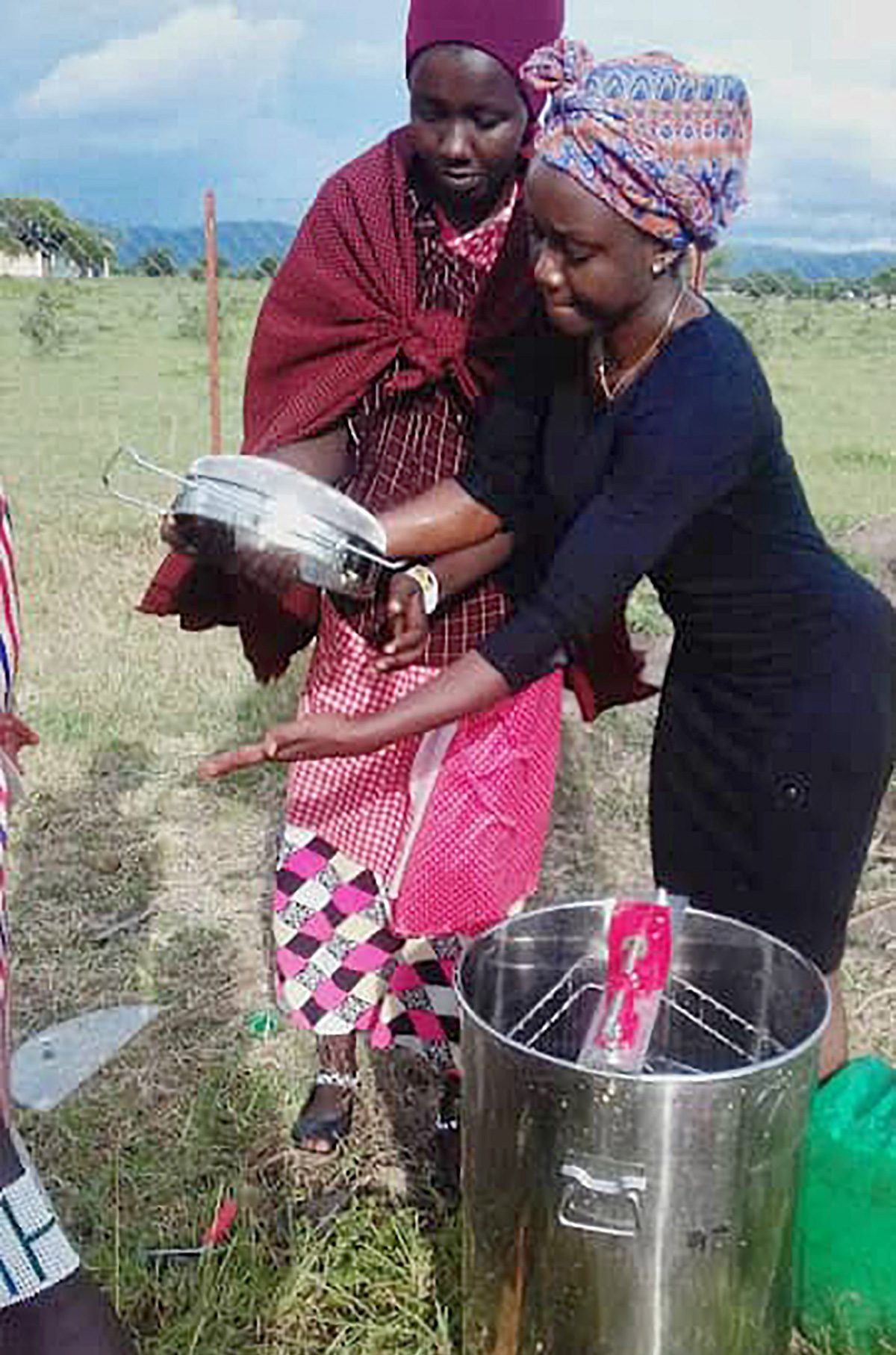
Why is COCOBA beekeeping an important sustainability initiative?
Beekeeping is a very environmentally friendly project. The women generate their income with the product they get from the project, but at the same time, they are not destroying their habitats. They are not destroying their environment. It suits them to maintain their biodiversity. It’s a very wonderful project!
What role do the women of COCOBA play in Tanzania’s future?
By giving them an education, we are not just teaching them beekeeping. They are doing this business, they are entering into the market, and they are helping to increase the economy of their country.
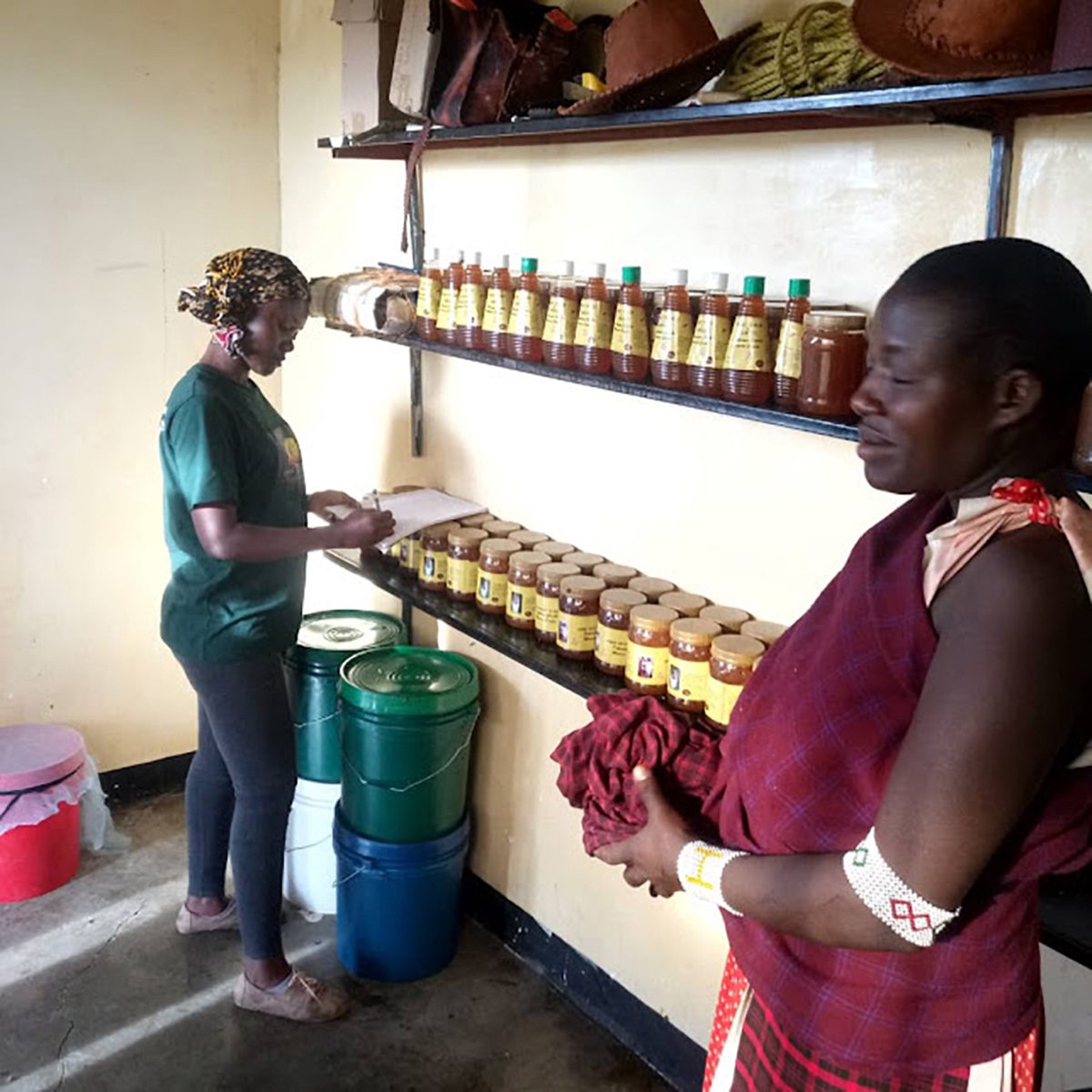
Do you have any final thoughts?
I’d like to thank FOTZC on behalf of these COCOBA women, because they played a very big role in making sure these women are getting everything necessary. At the end of the day, we are helping them be better beekeepers, and to contribute to their market of honey and beekeeping products. When you empower a woman, you empower the whole community.
